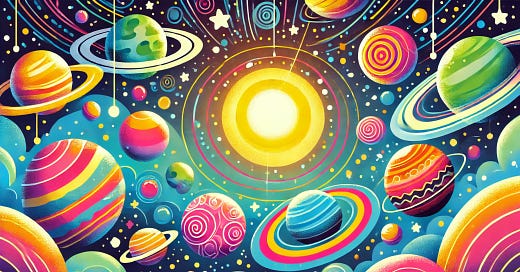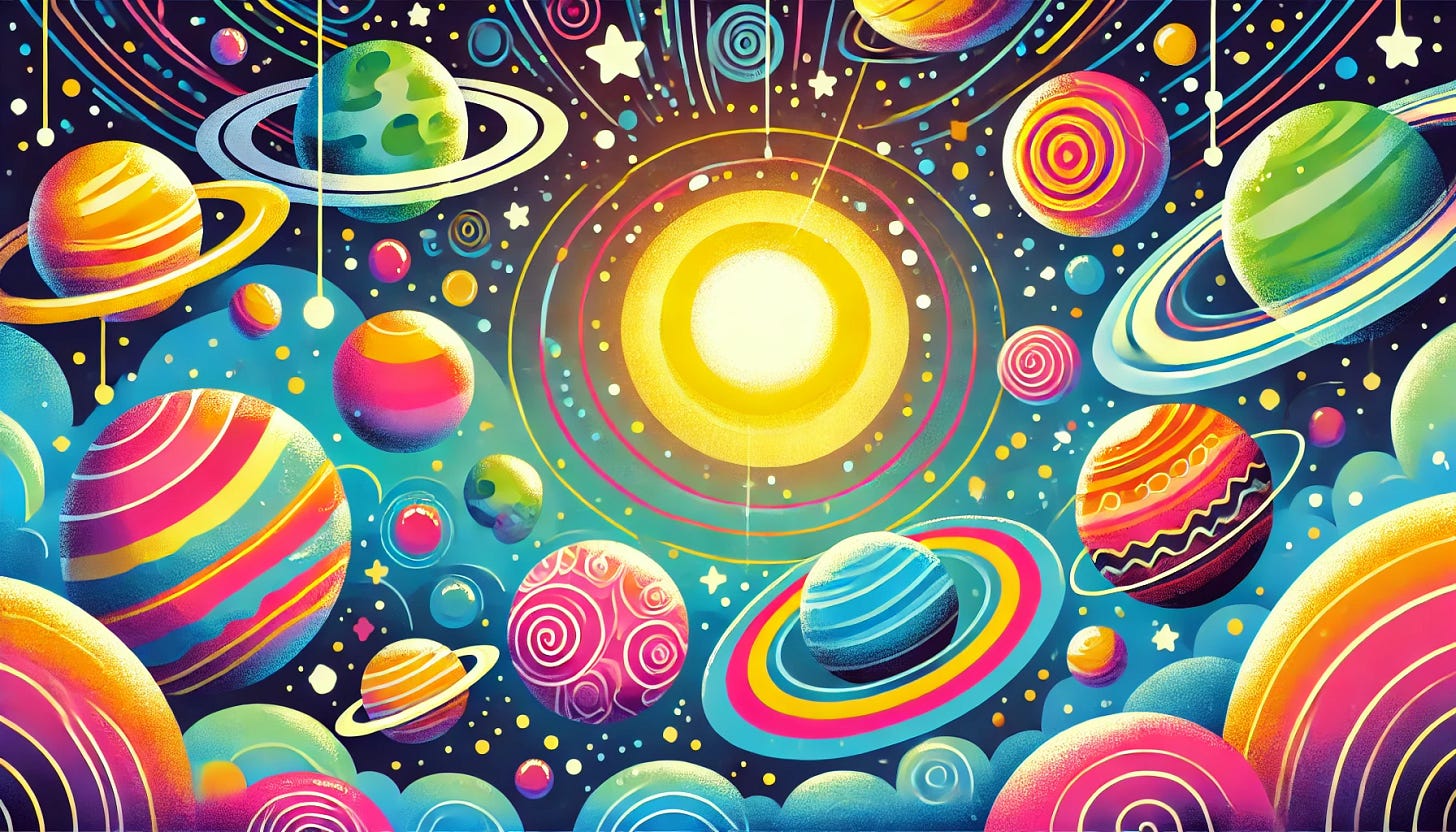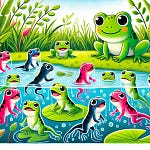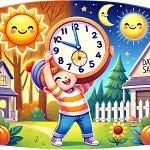What Is a Planet?
A planet is a big, round object that orbits, or moves around, a star. In our solar system, we have eight planets, and they all travel around the Sun. Some planets are made of rock, like Earth, while others are made of gas, like Jupiter. But no matter what they are made of, all planets have some things in common—they are round, they orbit a star, and they have enough gravity to clear their path of other space objects.
Hello my friends!
For a quick note, welcome to Tidbits with Titus, a podcast and newsletter where we tackle the big, curious questions kids ask every day in fun, bite-sized ways! I’m Alexander Titus, but I go by Titus. I’m a scientist, adventurer, and a huge fan of making science, technology, and life accessible to all ages. From “How does electricity work?” to “What are taxes?” and even “Why is the sky blue?” I’m here to dive into these wonder-filled questions with engaging stories and simple explanations that spark curiosity and make learning a joy. This effort is all about creating a space where families can learn together, discover the magic of the every day, and find thoughtful ways to explore the world’s big mysteries. Let’s make curiosity a family tradition—one tidbit at a time!
Just so you know, these podcast episodes are all AI-generated using Google’s really cool NotebookLM technology. That means there are some errors in how words are said, but that is part of the fun!
If your little ones have questions that you want help answering, shoot me an email at questions@tidbitswithtitus.com and I’ll see what I can do!
You can subscribe to the newsletter that has this information as well at tidbitswithtitus.com.
Also please share with anyone you think would be interested. The more the merrier!
Cheers,
-Titus
How Did Planets Form?
A long, long time ago—about 4.6 billion years ago—our solar system didn’t look the way it does today. Instead of the Sun and planets, there was just a big cloud of dust and gas floating in space. Scientists call this a nebula. Then, something incredible happened!
The Sun Was Born: The dust and gas in the nebula started to stick together because of gravity. The biggest part in the center became very hot and started to glow. This became our Sun!
Planets Started to Form: The leftover dust and gas around the Sun didn’t just disappear. Instead, small pieces stuck together to form bigger and bigger chunks. These chunks turned into rocks, and over time, they became planets!
Planets Found Their Places: The planets settled into their orbits around the Sun. Some stayed close to the Sun and became small, rocky planets like Mercury, Venus, Earth, and Mars. Others moved farther away and grew huge, forming gas giants like Jupiter and Saturn.
Why Do Planets Stay in Space?
Planets don’t just float away into space because of a special force called gravity. Gravity is like an invisible glue that keeps everything together. The Sun is so big that its gravity pulls the planets toward it, keeping them in their orbits. At the same time, the planets are moving really fast, so they don’t crash into the Sun but keep spinning around it!
Are There Planets Outside Our Solar System?
Yes! Our solar system isn’t the only one in space. Scientists have discovered thousands of other planets, called exoplanets, orbiting stars far, far away. Some exoplanets are giant and made of gas, just like Jupiter, while others are rocky like Earth. Some might even have water and could be home to alien life—how cool is that?
Fun Planet Facts!
Jupiter is the biggest planet in our solar system—more than 1,300 Earths could fit inside it!
Mercury is the closest planet to the Sun, but it’s not the hottest. Venus is actually hotter because of its thick clouds!
Earth is the only planet we know of that has life.
Saturn has beautiful rings made of ice and rock!
Neptune is the windiest planet, with storms stronger than any on Earth!
What Would Happen If There Were No Planets?
If there were no planets, our solar system would be a very lonely place. The Sun would still be there, but there would be no Earth, no Mars, no Jupiter—nothing but space dust! There would be no people, no animals, and no trees because Earth wouldn’t exist. That’s why planets are so important!
Can We Live on Other Planets?
Right now, Earth is the only planet we know of that can support life. Scientists are studying Mars and other planets to see if people might be able to live there someday. Maybe in the future, astronauts will build homes on another planet—how exciting would that be?
Conclusion
Planets exist because of the way our solar system formed billions of years ago. They stay in space because of gravity, and they orbit stars like our Sun. Without planets, we wouldn’t have Earth or anything we see around us! So, the next time you look up at the stars, remember that planets are part of an amazing space story that started long, long ago. Maybe one day, you’ll be a space explorer and visit another planet yourself!













Share this post